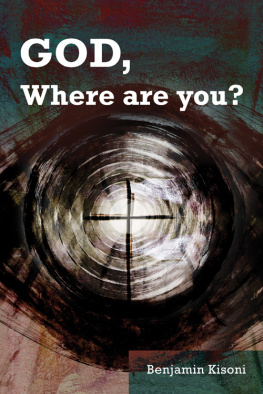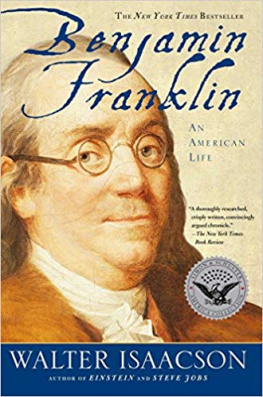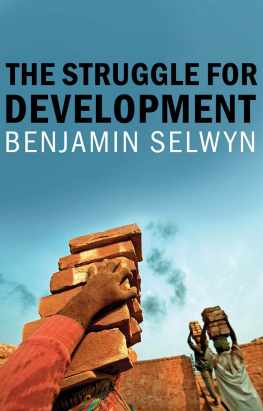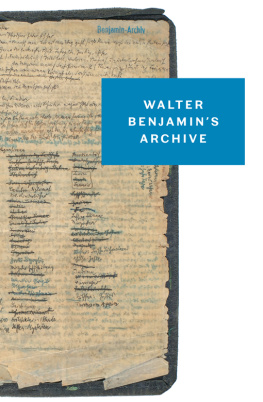H ave you ever asked the question God, where are you? Do you remember moments of despair, rejection, loneliness, pain and suffering you have gone through, or may still be going through? Life is full of all kinds of sorrows and tragedies. Physical, mental and emotional pains are often interrelated. Sometimes we are so exposed to painful diseases, the death of loved ones, justified or undeserved humiliations, disappointments, and distress that death seems more appealing than carrying on living.
In such circumstances, the more we seek support around us, the more it seems unreachable. The question God, where are you? keeps coming to our minds. He is not intervening in our lives in the way we would expect him to. Has his power been overwhelmed by the forces that overwhelm us? We may begin to doubt whether God actually exists. Surely if he does, he would have displayed his power and delivered us?
Some suffer in this way because of one particular problem; others fight on several fronts at the same time. For example, suffering rejection is one thing, but if some people are also seeking to kill you, you are in serious trouble. Unemployment coupled with marital discord can be more devastating than unemployment itself. Poverty is painful, but if sickness is added to it you begin to question the very purpose of human life. You do not know where to turn; you feel helpless and overwhelmed. You may also feel lonely with no support or help, and sink into despair.
Nobody likes suffering. Yet, whether we are good or bad, rich or poor, sick or healthy, we all face suffering in one way or another. There are times when we can easily express our pain. There are also times when our pain is so intense that we struggle even to find words to express it.
A friend once told me that during a period when he was under constant threat of death from unknown assailants, he heard a fellow-believer say, I like suffering because I know how to fight and overcome it. My friend was overcome with guilt. Was he wrong to be living in fear of these death threats? He turned to others for help, but few people could identify with him. He felt rejected. Some people did not even have time to listen to him. Maybe they too had their own concerns and were desperately searching for help. This friend of mine began to ask the age-old question posed by all who suffer, God, where are you?
The believer who said he liked suffering, was he thinking only about the sort of predictable suffering we see in movies that we know will have a happy ending? Why would anyone even think of enjoying suffering? These questions lingered in my mind, and the age-old question remained, God, where are you when suffering overwhelms us?
I have found that it is easy to speak of suffering and propose illusory solutions when one has not yet endured severe suffering. By experience, I have learned that I have to journey with the question, God, where are you? but at the same time remain realistic and wise because suffering is part of life. This truth has motivated me to present my story to encourage those who are desperate. In critical moments, hope in God alone kept me going, and hope alone gave me a new perspective on life.
When suffering buffets us and causes us to despair even of life itself, we should take heart, knowing that victory is still possible even in the midst of suffering.
My story begins in 1996 towards the end of the rule of President Mobutu of Zaire (a country that would revert to the name Democratic Republic of Congo after his fall). At that time the eastern Congo was flooded with Rwandan refugees. The political instability that followed has been perpetuated by regular rebellions, leaving the region prey to anarchy and violence.
SUMMONS
I was flipping through the latest issue of Africa Today in my office, when the ringing of the telephone startled me. When I answered the secretary said, An urgent message for you at the Directors office, please.
An urgent message for me? Whom could it come from? Apart from Njoroge, my internship director, and his three teammates, no one else in that part of Kenya knew me. My wife and children were far away in my own country, the Democratic Republic of Congo (formerly Zaire). Had some misfortune happened to them that needed my immediate attention? Or was there a problem with my papers at the immigration services that welcomed me only a few weeks ago?
The international media had been talking vaguely about some rebellion that had broken out in the eastern part of the Democratic Republic of Congo in 1996. That couldnt be it, I thought. The fighting was taking place more than a thousand miles from my workplace and even farther south of my hometown, Butembo.
People sometimes resort to veiled messages in order not to shock someone with the news of the death of a loved one. But none of my relatives were sick, unless someone had succumbed to a brief illness or had been in an accident. But of what use would it be to hide the bad news from me when I would eventually get it? My heart began to beat fast as I became convinced that someone had died. But at the same time, I racked my brains for other possibilities because, I thought, one never knows! I chided myself for expecting the worst without reason, given that the message was not detailed.
Feeling apprehensive, I set off to Njoroges office. It was only a few minutes walk across the compound of Kesho Publications but the distance seemed longer than usual as I rushed to listen to the message.
Of all the phone calls I had received since my arrival at the training centre in Kijabe, none had disturbed me as much as this one; none had been described as urgent.
When I entered Njoroges office, he looked at me gloomily and said, Go and pack your suitcase quickly, I am taking you to Nairobi, to Wilson Airport. A plane is waiting to fly you back to Rethy.
I could not believe it. I had come for a five-month internship, but after only two months, I was being called back without being told the reason for the recall! Anxiously I rushed to my lodgings, quickly packed my things, and a few minutes later joined Njoroge and we set off. Njoroge looked slim and handsome in his sky-blue shirt with a matching dark blue and white striped tie. Dark glasses hid his eyes. During the trip, I tried to ask him what was going on, but he was concentrating on driving on the fast and crowded road. The pilot at Wilson Airport will let us know whats wrong, he said.
I found myself wondering whether Njoroge was trying to hide something more serious than I had imagined, or whether even he did not know the reason for my recall. Knowing him, I couldnt believe that he was hiding the truth from me unless he did so out of cowardice. And that was not his nature.
The drive from Kijabe to the airport took over an hour, despite Njoroge doing everything he could to avoid traffic jams. From time to time I watched him carefully, trying to read his thoughts, but his face gave nothing away. I thought that at some point he would drop a hint, but I waited in vain.
We made occasional comments about the cars that were whizzing past us as if they were on a racetrack. One couldnt miss the minibuses, commonly called matatus in Kenya, with touts hanging precariously out the doors, shouting aggressively to attract the attention of commuters.
Despite all these distractions, the apprehension about my hasty recall lurked near the surface of my brain turning rhythmically with the wheels of the cars on the road and making me feel dizzy from time to time.













